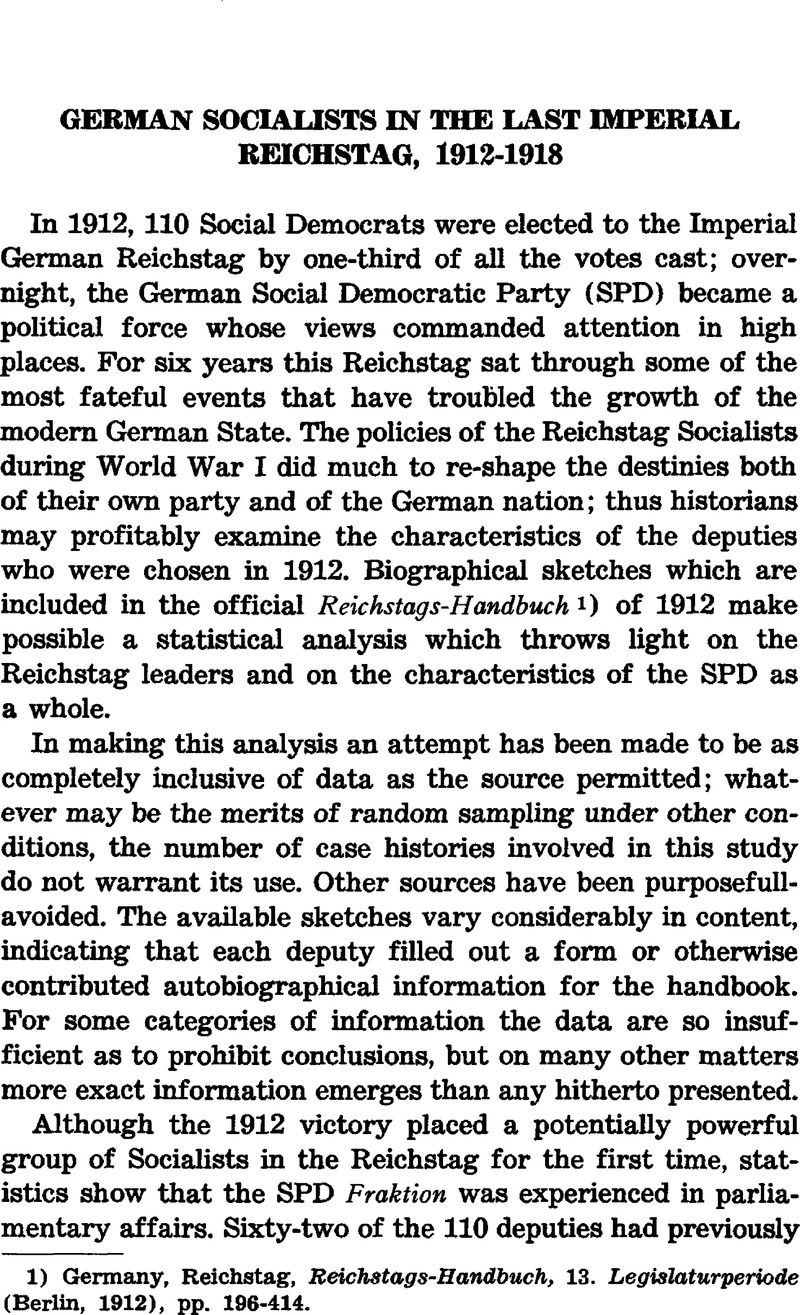Published online by Cambridge University Press: 18 December 2008

page 198 note 1) 1) Germany, , Reichstag, , Reichstag- Handbuch, 13. Leguilaturperwde (Berlin, 1912), pp. 196–414.Google Scholar
page 199 note 1) It is a matter of record that union influence was one of sobriety and moderation. (Cf., John L. Sneil, “Socialist Unions and Socialist Patriotism in Germany, 1914–1918”, to be published in a forthcoming number of the American Historical Review.) The trend indicated in 1912 was continued during and immediately after the war. Of the 165 SDP delegates in the Weimar Assembly of 1919, 54.5 percent indicated union experience and 32.7 percent were union officials by main occupation.Google Scholar
page 200 note 1) From Weber's post-war lecture, “Politik als Beruf,” Max, Weber, Essays in Sociology, trans. and ed. by Gerth, H. H. and Wright Mills, C. (New York, 1946), p. 112.Google Scholar
page 200 note 2) Neffe, M. (ed.), Btatistisches Jahrbuch Deutsoher Städte, I (Berlin, 1890), p. 23.Google Scholar
page 203 note 1) The term “persecution” as used here encompasses imprisonment, numerous arrests, deprivation of livelihood, indirectly or directly, or exile.
page 204 note 1) Cf., e.g., Carl Severing, Mein Lebensweg (Cologne, 1950), I, 34–36;Google ScholarSollmann, F.W., Religion and Politics (Wallingford, Pennsylvania, 1942).Google Scholar
page 204 note 2) Gustav, Noske, Erlebtes aus Aufstieg und Niedergang einer Demokratie (Offenbach-Main, 1947), p. 27;Google ScholarRichard, Calwer, Das Kommunietische Manifest und die heutige Sozialdemokratie (Braunschweig, 1894); pp. 39–41;Google ScholarEmil, Kioth, Sozialclemokratie und Judentum(Munich, 1920);Google ScholarAnton, Fendrich, Die, Kluft, Ergebnisse, Briefe, Dokumente aus den Kriegsjahren 1914–1919 (Stuttgart, 1919), p. 59.Google Scholar
page 205 note 1) Similar surveys of SPD parliamentarians of the Weimar period and of those in the Bonn Bundestag are being prepared by the author.